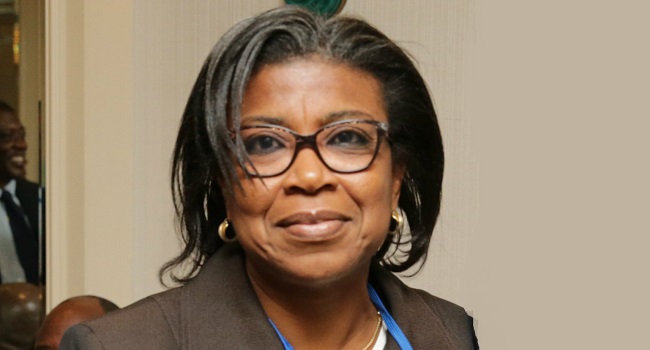News
Nigerian govt issuing promissory notes, taking loans despite low revenue, DMO laments

The Director-General of the Debt Management Office (DMO), Patience Oniha, said the Federal Government is obtaining loans and issuing promissory notes despite not having revenue to meet the debt obligations.
Oniha in an interview with Channels TV on Wednesday said this has led to significant rise in Nigeria’s debt. Although she acknowledged that loans are essential in financing government’s activities but there’s a need for available revenue to support government’s projects.
She said Nigeria’s debt is currently at N46.25 trillion, but the 2023 budgets of FG and states will result in new borrowings from multilateral and bilateral channels.
With the approval of the ways and means loans obtained from the Central Bank of Nigeria (CBN), the country’s debt is projected is to climb N77 trillion before the next administration comes in on May 29, 2023.
Explaining the situation with Nigeria’s growing debt, Oniha said the government has been funding budget deficit with loan due to low revenue, resulting in debt service gulping the turnover of the country.
“Nigeria’s debt stock is N46.25 trillion. It includes the debt of the 36 state governments and the federal capital territory (FCT). The federal government is responsible for 84 percent to 85 percent of this.
“What triggers debts and why the debt stock keeps growing is because when the debt stock is growing, debt service also grows.
READ ALSO:DMO offers two FGN savings bonds at N1,000 per unit
“The debt stock is growing because Nigeria has been running a budget deficit for many decades.
“In good and bad times with oil prices, we have borrowed. We have been running budget deficits and those deficits are funded largely by 85 percent to 95 percent from borrowing and that is cumulative. These are publicly available data.
“As we borrow each year, it adds up. So, the annual budget deficits are a major component. If you look at this year’s budget, the budget size is N21 trillion, borrowing is N10 trillion.
“The third part – the government has been issuing promissory notes to settle obligations for which it doesn’t really have the revenue. So, that is why the debt stock has been growing,” Oniha said.
Despite the rising debt profile, the DMO boss said the debt to gross domestic product (GDP) of Nigeria is the lowest in Africa.
“Our debt to GDP as at December 2022 was 23 percent and that is still within the limit the government set for itself and the 55 percent set by the World Bank and International Monetary Fund (IMF).
“If we add the ways and means, it increases to about 40 percent,”Oniha stated, adding, “The challenge is debt service to revenue and Nigeria has 6.7 percent ratio revenue to GDP.”
Join the conversation
Support Ripples Nigeria, hold up solutions journalism
Balanced, fearless journalism driven by data comes at huge financial costs.
As a media platform, we hold leadership accountable and will not trade the right to press freedom and free speech for a piece of cake.
If you like what we do, and are ready to uphold solutions journalism, kindly donate to the Ripples Nigeria cause.
Your support would help to ensure that citizens and institutions continue to have free access to credible and reliable information for societal development.




















